Athens, the historic capital of Greece, is a city that seamlessly blends the ancient with the modern. For first-time travellers, Athens can be both exhilarating and overwhelming. With its rich history, vibrant culture, and tantalizing cuisine, there’s so much to see and do. To help you make the most of your visit, we’ve compiled an Athens travel guide and a list of essential tips to ensure your trip to this ancient city will be unforgettable.
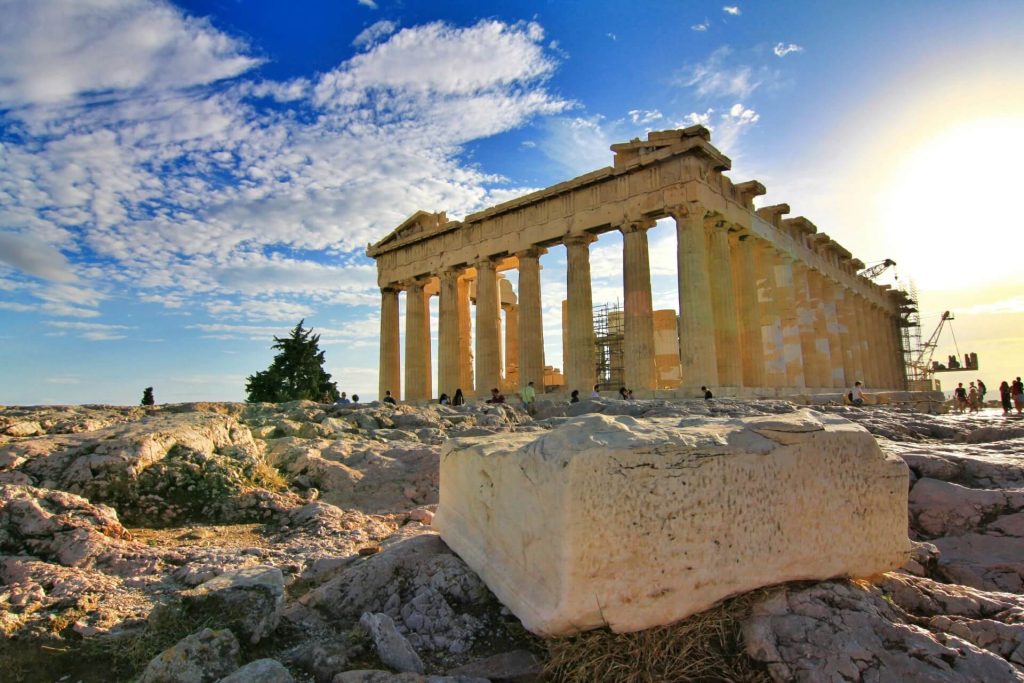
Athens shines year-round, but spring and autumn steal the show! Picture yourself strolling through sun-dappled streets in April or October, when mild temperatures and fewer crowds make Athens one of the best destinations in Europe, create the perfect backdrop for your adventure. Summer sizzles with energy but be ready for the heat and bustling tourist spots. Winter offers a cozy, local vibe and great deals, though some attractions may have reduced hours.
Stretch your euros further with smart choices! Snag an Athens City Pass for free entry to top sights and skip-the-line perks. See if the included attractions and activities could be part of your itinerary. If so, the City Pass might be a perfect combined ticket for all you planned to discover in Athens.
Discover hidden gems like free museum days and walking tours. Feast like a local at charming tavernas instead of tourist traps. Think about budget-friendly accommodation with occasional splurges on rooftop views – nobody wants to spend time at a hotel room anyway. With a little planning, you’ll maximize experiences without breaking the bank!
Everything you need in one ticket.
Three days? Hit the Acropolis, wander Plaka, and soak in history at the National Archaeological Museum. Five days? Add day trips to nearby islands or ancient Delphi. A week? Dive deeper into local neighbourhoods and take your time savouring each moment in the capital city. Balance must-see sights like ancient monuments with leisurely café breaks and aimless wanderings. Remember, some of the best memories come from unexpected discoveries!
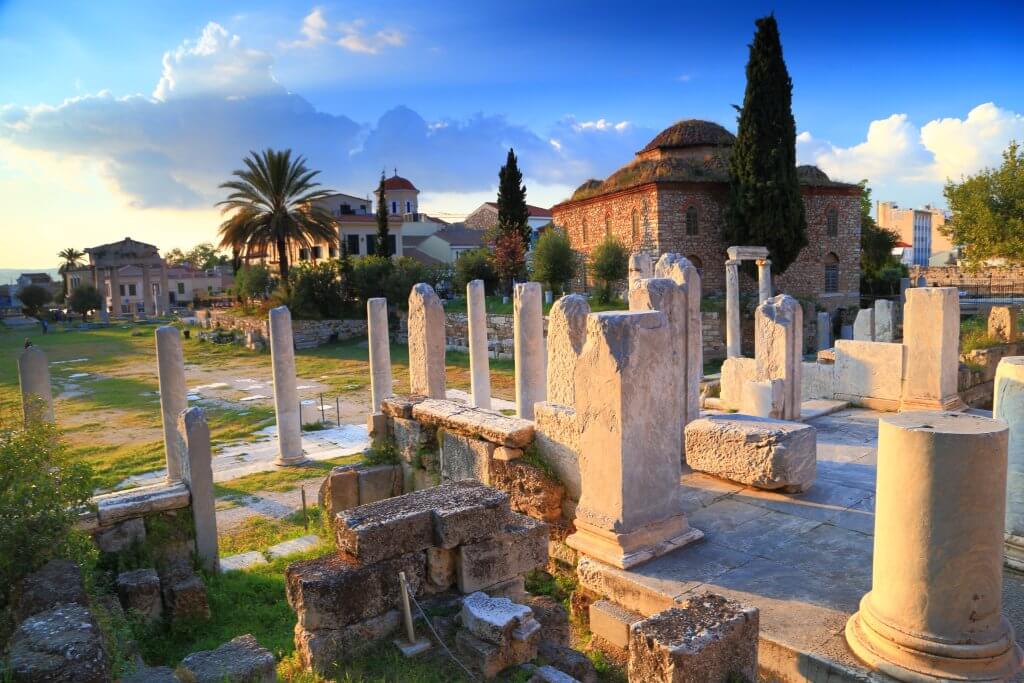
EU citizens just can come and go as they like. Many other nationalities enjoy visa-free stays up to 90 days. Double-check your specific requirements well in advance. Ensure your passport is valid for at least three months beyond your planned stay. Keep an eye out for any current health or entry forms – requirements can change, so stay informed for a smooth arrival.
Dress for success in Athens’ Mediterranean climate! Summers call for light, breathable clothes and sun protection. Spring and autumn? Layer up for comfortable day-to-night transitions. And you winter visitors, pack a warm jacket for cooler evenings. In any case: Don’t forget comfy walking shoes – you’ll not only cover lots of ground but at the ancient sites it will be very uneven! Toss in a universal adapter, a reusable water bottle, and any medications you might need and you are ready to go.
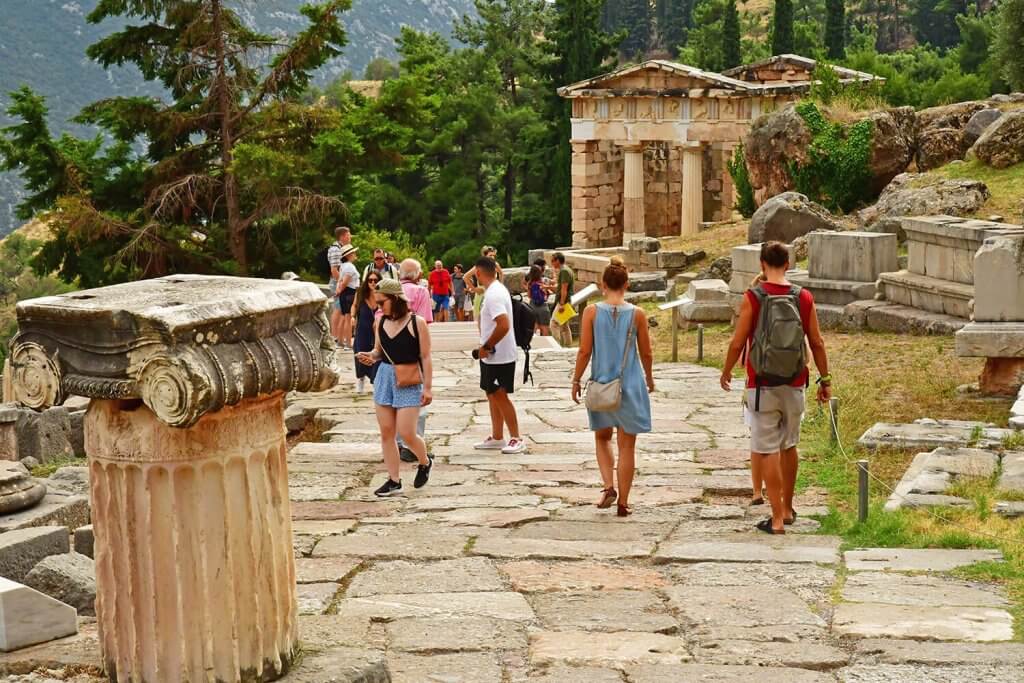
Euro is king in Athens! While cards are widely accepted, having some cash on hand is smart for small purchases and traditional markets. Skip airport exchanges – withdraw euros from ATMs in the city for better rates. Do not forget to inform your bank about your travel plans to avoid any card surprises. When paying, a mix of cash and cards will serve you well throughout your Greek odyssey.
A few Greek phrases go a long way in winning local hearts. Your attempts at Greek should often be met with warm smiles! Start with the basics: “Kalimera” (Good morning), “Efharisto” (Thank you), and “Parakalo” (Please/You’re welcome). Learn to say “Yia sou” (Hello) and “Yia mas” (Cheers) for friendly interactions. Don’t worry if your pronunciation isn’t perfect – Athenians appreciate the effort, and many speak English.

Athens’ metro is your golden ticket to easy exploration! As you can get from the international airport to the city centre by metro or bus, there is no reason to get a rental car. Clean, efficient, and adorned with ancient artifacts unearthed during construction, the metro is an experience in itself. Grab a multi-day tourist pass for unlimited rides on metro, buses, and trams.
The extensive bus network reaches spots the metro doesn’t. Pro tip: Download a transit app to navigate like a pro and never miss your stop!
Yellow taxis are plentiful, but ride-sharing apps offer convenience and clear pricing. Always ensure your taxi uses the meter or agree on a fare beforehand for airport runs. A small tip (rounding up or 5-10%) is appreciated but not mandatory. For peace of mind, especially at night, ride-sharing apps let you track your journey and share your route with friends.
Lace up those comfy shoes – Athens’ heart is best explored on foot! The historic centre, including Plaka, Monastiraki, and Syntagma, is a pedestrian’s dream. Wander through time as you discover hidden courtyards and charming alleyways. Each step brings new wonders in this ancient-meets-modern cityscape! Athens is generally safe, but it does not hurt to stay alert in busy areas, stick to well-lit streets at night, and always watch for uneven pavements.
The last point probably being the most important. From own experience: marble pavements look gorgeous, but they are also extremely slippery when wet. And if you land on your buttocks, they are simply very hard.
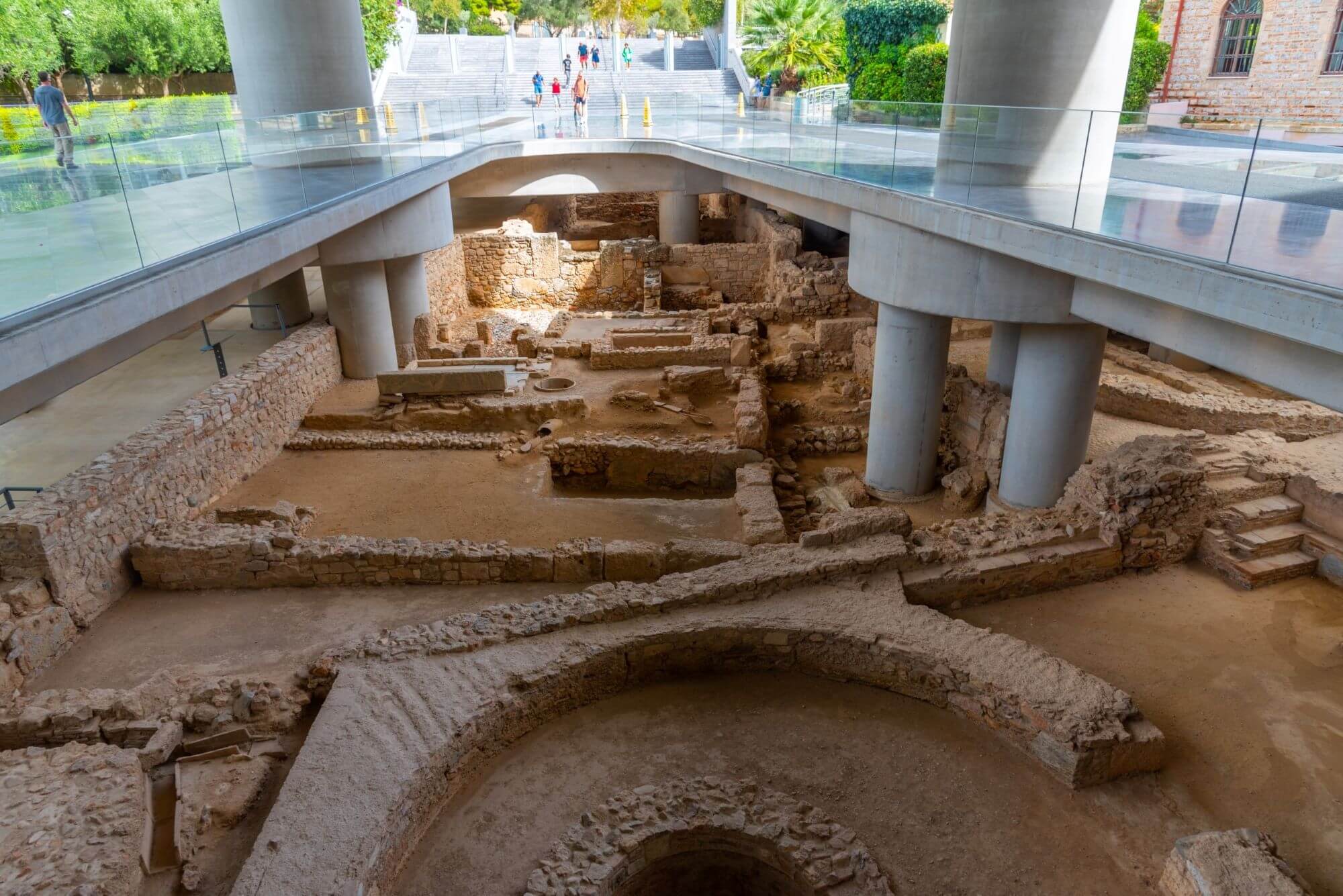
The Acropolis Museum was opened in 2009 and offers an impressive collection of artefacts discovered during excavations on the Acropolis Hill. Pro tip: Before heading to the Acropolis, visit the nearby Acropolis Museum. This modern museum offers a comprehensive look at the artifacts, heritage and history of the Acropolis, providing a deeper understanding of what you will see at the site.
The museum is located directly below the Acropolis and gives visitors a fascinating insight into the history and culture of ancient Greece.
Tips:
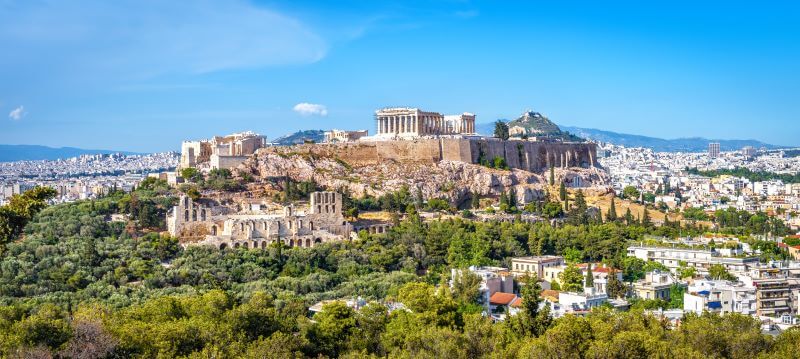
No trip to Athens is complete without visiting the Acropolis. This ancient citadel stands majestically over the city, housing several significant structures, with the Parthenon being the crown jewel. As a first-time traveller, you’ll be awestruck by the grandeur of these ancient ruins.
The Acropolis is the most famous landmark in Athens and a symbol of ancient Greek civilisation. It towers majestically over the city and was once the religious centre of Athens. Construction of the Parthenon, a temple dedicated to the goddess Athena, began in 447 BC after the victory over the Persians. The Parthenon is considered a masterpiece of ancient architecture and attracts millions of tourists every year.
Tips:
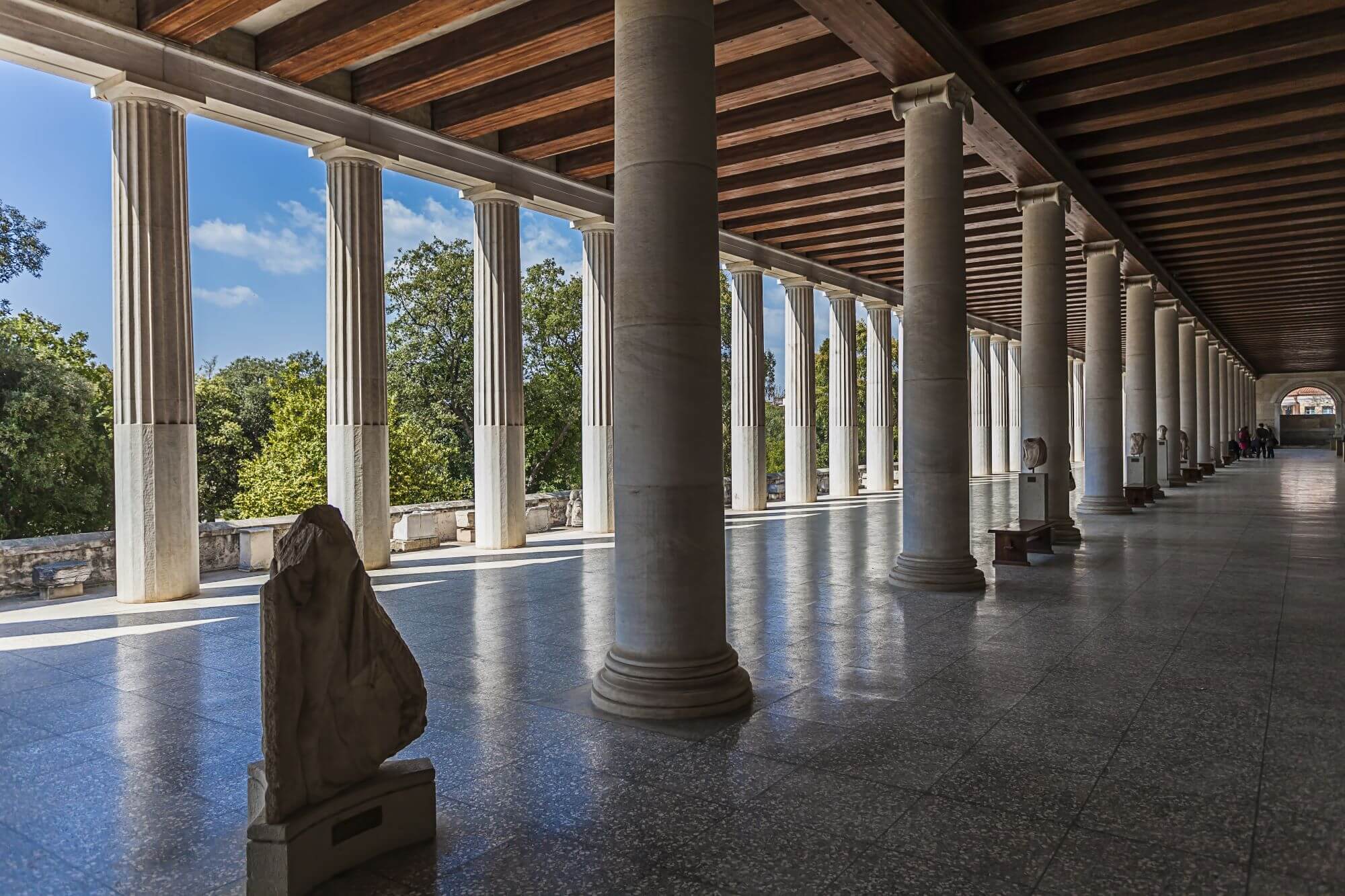
The ancient Agora was the centre of public life in the historic city of Athens and served as a marketplace and meeting place for citizens. Political debates, social events and commercial activities took place here.
The Agora is home to many important buildings, including the well-preserved Temple of Hephaestus, dedicated to the god of fire. Most of them, of course, are in ruins, but you can see the structure of the streets of the ancient city.
Tips:
Of course there are so many other places to see and visit from the time that Athens was the historical capital and cradle of western civilization. Do not miss the temple of Olympian Zeus, the Roman Agora or the archeological site of Kerameikos.

Syntagma Square is the heart of Athen’s busy city centre and a meeting point for locals and tourists. It was laid out in 1834 and was originally intended as a palace square before being renamed following the adoption of Greece’s first constitution in 1843.
The Greek Parliament is located here, making the square an important political centre. The square is not only known for its historical significance, but also for its lively atmosphere, characterised by numerous cafés, shops and street artists.
Here, you can witness the changing of the guard ceremony in front of the Hellenic Parliament. The Evzones, dressed in their unique traditional uniforms, perform this ritual every hour.
Tips:
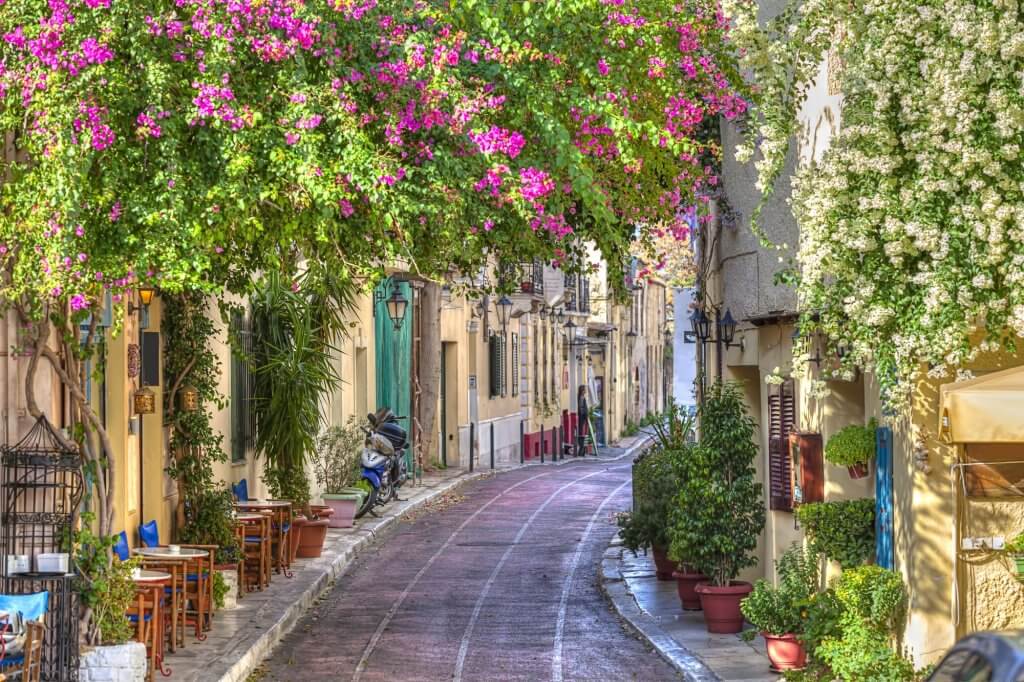
Plaka is the charming old town district of Athens, located directly below the Acropolis. With its narrow alleyways, colourful houses and historic buildings, Plaka transports visitors back in time. This neighbourhood was once the residential area of the Athenian upper class and has retained its traditional character today.
Here you will find many tavernas, souvenir shops and small art galleries that reflect the authentic Greek way of life. It’s the perfect place for a leisurely meal and a stroll.
Tips:

The neighbourhoods of Monastiraki and Psiri are known for their lively atmosphere and cultural offerings. Monastiraki is famous for its flea market, where you can find everything from antiques to handmade souvenirs.
Psiri, on the other hand, has a vibrant nightlife with numerous bars, restaurants and live music venues. Both neighbourhoods are ideal for experiencing modern Athens and immersing yourself in history at the same time.
Tips:
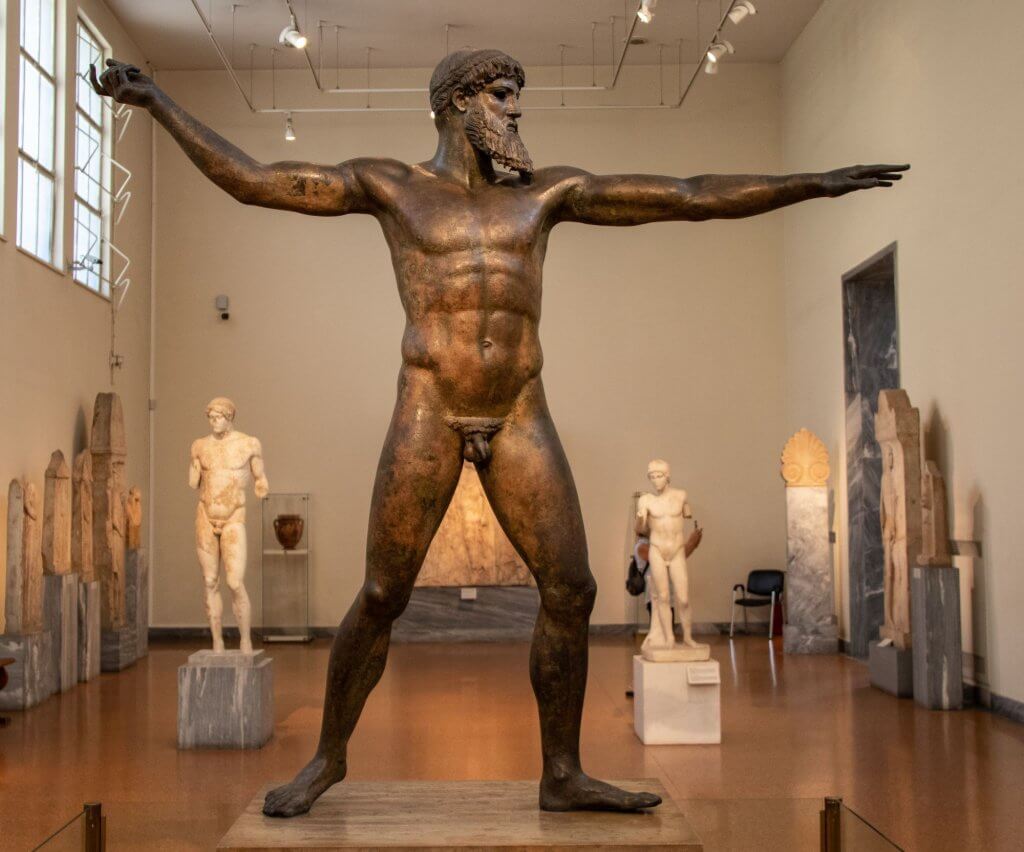
Home to one of the world’s most impressive collections of ancient Greek art and artifacts, the National Archaeological Museum is a must-see.
The Museum is one of the most important museums in the world and houses one of the most impressive collections of ancient Greek art and artefacts that have been found at the ancient monuments all over the city. From the Mask of Agamemnon to the Antikythera Mechanism, the exhibitions are breathtaking and offer a deep insight into Greek civilisation. The museum was founded in the 19th century and attracts thousands of visitors every year to explore the over 20,000 exhibits.
Tips:

For a unique experience, visit the Central Market (Varvakios Agora). This bustling market is a feast for the senses, with vendors selling fresh produce, meats, and seafood. The market is not only a great place to shop, but also ideal for sampling local specialities and enjoying the authentic atmosphere of Athens.
Tips:
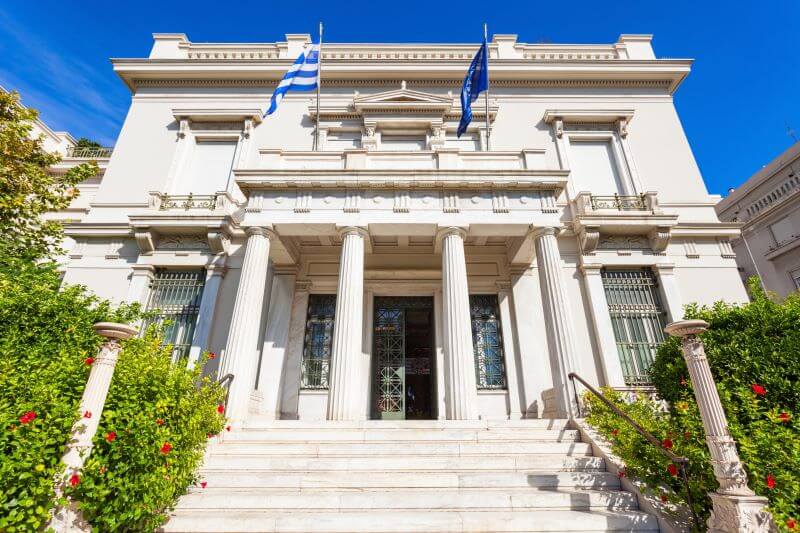
The Benaki Museum, housed in one of those neoclassical buildings, offers a diverse collection that spans Greek history from antiquity to the modern era. It is a fantastic place to gain a comprehensive understanding of Greece’s cultural heritage. The exhibitions are well curated and offer a deep insight into the development of Greek art and culture.
Tips:

The Gazi District was once an industrial area that has been transformed into a vibrant cultural centre. Known for its street art and trendy cafés, Gazi attracts both locals and tourists. The Technopolis complex regularly hosts art exhibitions, concerts and festivals that emphasise the creative atmosphere of the neighbourhood. Gazi is the perfect place to experience modern Athens while immersing yourself in its cultural roots.
Tips:
Lycabettus Hill is the highest point in Athens and offers an unforgettable view of the city. A ride on the funicular railway to the top is an experience in itself. From here you have a breathtaking view of the Acropolis and the sparkling city lights, especially at sunset. The hill is a favourite spot for romantic evenings and photo opportunities.
Tips:
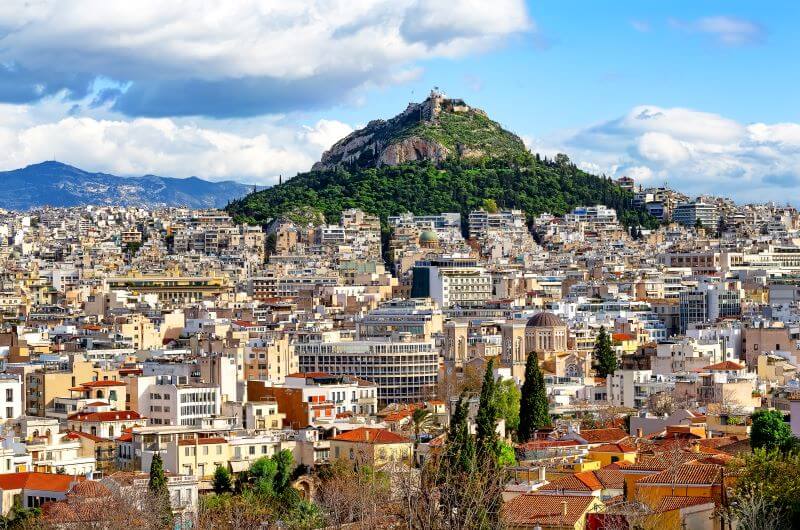
These outdoor activities and day trips offer you the opportunity to discover Athens and its surroundings in a variety of ways and make unforgettable memories!
Athens offers a variety of outdoor activities that allow you to enjoy the natural beauty of the city. One popular activity is hiking up Lycabettus Hill, the highest point in Athens. The climb rewards you with a breathtaking view over the city and the Acropolis. Another beautiful place is the National Garden, which is located right next to Syntagma Square. Here you can relax surrounded by lush greenery, colourful flowers and tranquil ponds.
Tips for activities:
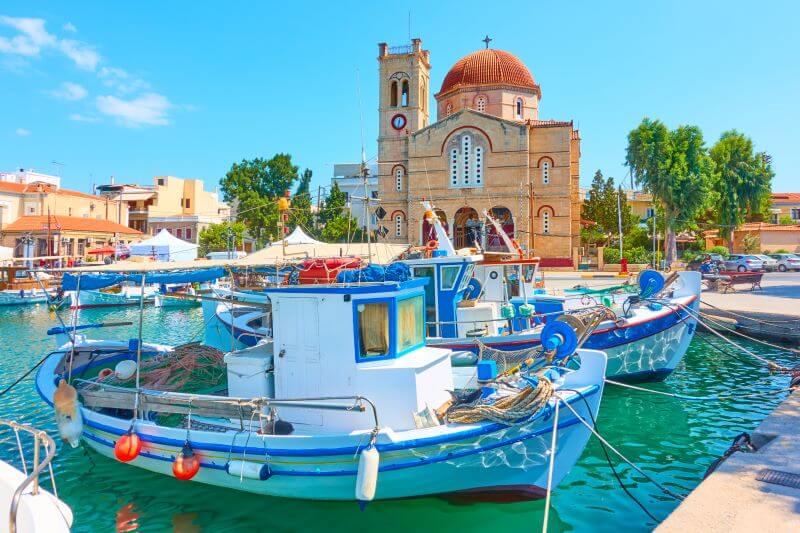
There are several fascinating destinations for popular day trips from Athens. An absolute highlight is Sounion, known for the Temple of Poseidon, which towers majestically over the sea. The ruins date back to the 5th century BC and offer an impressive view of the Aegean Sea, especially at sunset.
Another recommended excursion is to Delphi, one of the most important archaeological sites in Greece, where the Oracle of Delphi was once consulted. For beach lovers, the island excursions to nearby destinations such as Hydra or Aegina are an excellent way to experience the Greek island paradise.
Tips for day trips:

Traditional Greek cuisine is a feast for the senses and offers a variety of delicious dishes that you should definitely try. Must-try dishes include souvlaki, marinated pieces of meat grilled on skewers and often served with tzatziki. Moussaka, a savoury casserole dish made from aubergines, minced meat and a creamy béchamel sauce, is another highlight. The Greek salad combines fresh tomatoes, cucumber, olives and feta cheese for a refreshing treat. For dessert, you should definitely try Loukoumades, a Greek donut variation with honey.
There are various options for dining in Athens, including traditional tavernas that serve authentic Greek dishes in a cosy atmosphere. Rooftop restaurants not only offer delicious food, but also breathtaking views of the city and the Acropolis. Street food markets are ideal for sampling local snacks and specialities and experiencing the hustle and bustle of the city.

In Greece, it is important to understand the local eating habits. Meals are often sociable and can include several courses. It is customary to share food so that you can try different dishes. Eating at the table is not usually done with cutlery; many dishes are eaten with bread or hands.
There are some guidelines for tipping: In restaurants, a tip of around 5-10% of the bill is expected, depending on the quality of service. In cafés or bars, tips are often rounded up or a small amount is left. Tipping is not customary at street stalls, but a small token of appreciation for good service is appreciated.
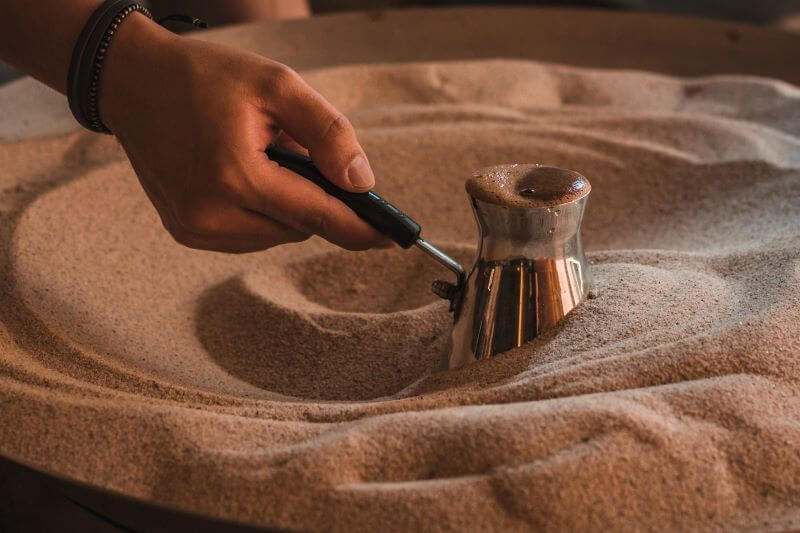
Athens has a vibrant nightlife with a variety of places where you can experience the best of the city. The best places for nightlife are bars, which often offer creative cocktails and local wines, as well as clubs where you can dance until the early hours of the morning. Traditional cafés are ideal for relaxed evenings with Greek coffee or ouzo.
Specialities that you should definitely try include ouzo, an aniseed-flavoured schnapps that is often served as an aperitif. Local wines from the various wine regions of Greece provide an excellent accompaniment to traditional dishes.
There are several popular variations of Greek coffee that you should definitely try. Eliniko kafe, also known as Greek coffee, is traditionally prepared in a special small pot called a briki. This involves boiling finely ground coffee beans with water and optional sugar, resulting in a strong, flavoursome drink that is often served with a frothy topping called kaimaki.
Another popular option is frappe, a refreshing, frothy cold drink made from instant coffee, water and sugar. Frappe is shaken or mixed vigorously until a thick head of foam forms and is perfect for hot summer days. These two coffees are not only delicious, but also deeply rooted in Greek coffee culture and offer you an authentic taste of Greece.
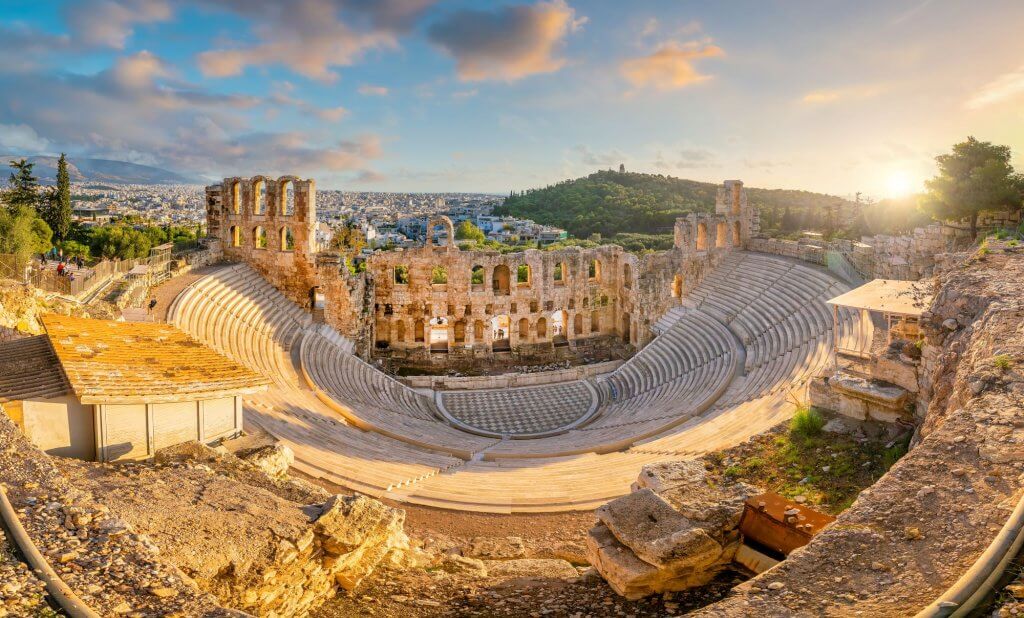
Counting the tips for sunset must-sees alone, we can safely say: Better not just stay for a day or two. Take your time with the Greek capital and experience it to the fullest. As stated at the beginning, Athens can be overwhelming, but the more time you take, the better you understand the city. And the more you immerse yourself in the wonderful place that is Athens, Greece.
By following these Athens essential tips, first-time travellers can maximize their vacation and experience the best that the capital of Greece has to offer. From ancient landmarks to modern cultural spots, Athens promises a stay filled with unforgettable memories. Enjoy your trip!